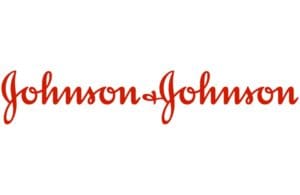 The European Medicines Agency confirmed that the benefits of the COVID-19 vaccine from Johnson & Johnson (NYSE:JNJ) outweigh risks of blood clots.
The European Medicines Agency confirmed that the benefits of the COVID-19 vaccine from Johnson & Johnson (NYSE:JNJ) outweigh risks of blood clots.
At a meeting today, EMA’s safety committee (PRAC) concluded that there is a link between unusual blood clots with low blood platelets with the COVID-19 vaccine made by J&J’s Janssen Pharmaceuticals unit. PRAC determined that a warning for this potential issue should be added to the vaccine’s product information and the events should be listed as a very rare side effect of the vaccine, according to a news release.
The committee considered all available evidence of the events, which came to the fore after six reports of blood clots and one death in the U.S., which led to the country pausing use of J&J’s vaccine. EMA cited eight reports from the U.S. regarding blood clots among more than 7 million people who had received the J&J vaccine.
Blood clots occurred mostly at unusual sites such as in veins located in the brain (cerebral venous sinus thrombosis, CVST) and abdomen (splanchnic vein thrombosis), as well as in arteries, together with low levels of blood platelets and sometimes bleeding. EMA noted that the cases reviewed were similar to those observed with the AstraZeneca COVID-19 vaccine.
Read: 9 things to know as AstraZeneca and J&J COVID-19 vaccines face safety scrutiny
All cases occurred in people under 60 years of age within three weeks of their vaccination, with the majority affecting women. Still, based on current evidence, specific risk factors have not been confirmed.
In determining this, EMA concluded that, with COVID-19 being associated with a risk of hospitalization and death and the combination of blood clots and low blood platelets being very rare, the overall benefits of the J&J COVID-19 vaccine in preventing serious illness from infection outweigh the risks of side effects.